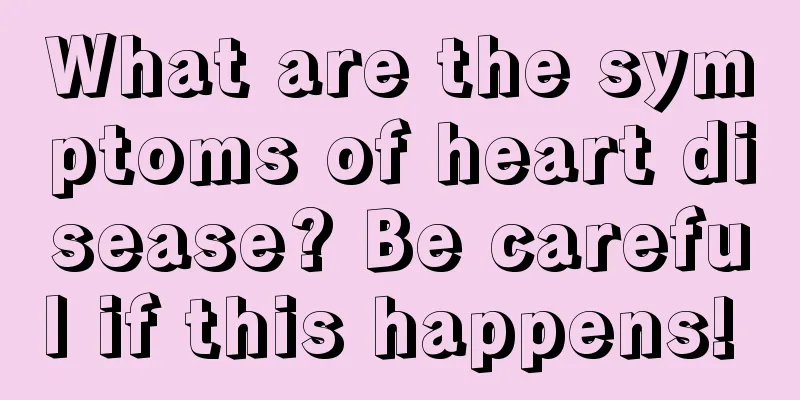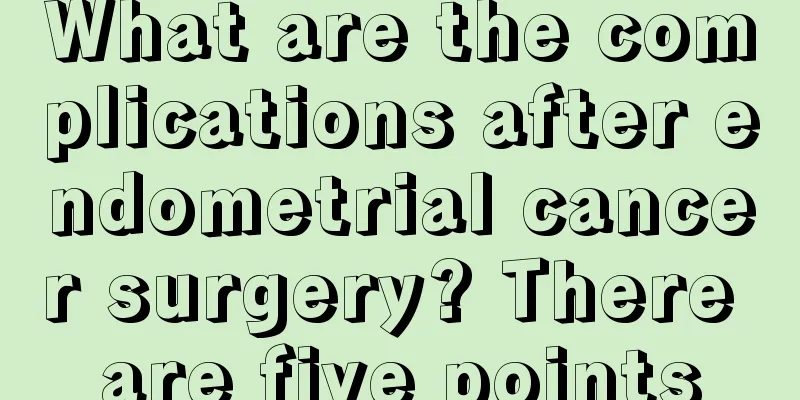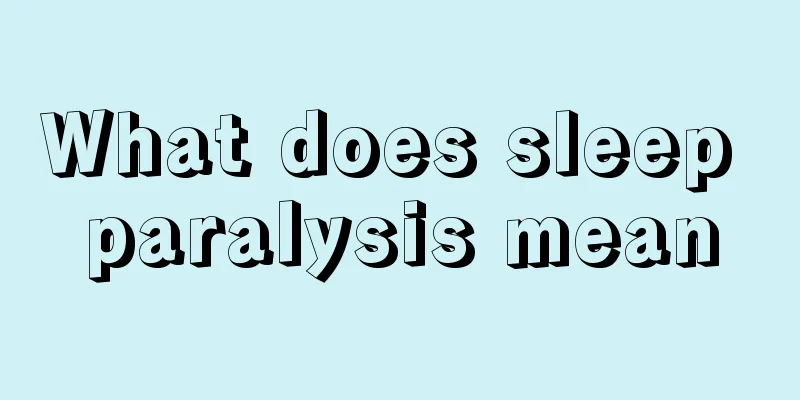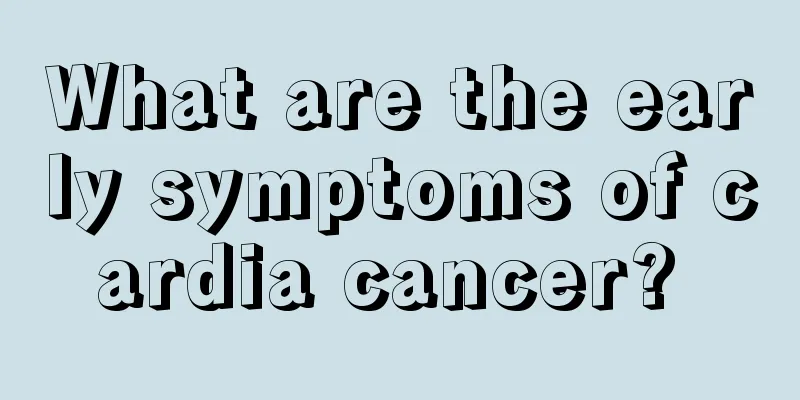What are the symptoms of heart disease? Be careful if this happens!

|
I believe everyone is familiar with heart disease, because this disease is extremely common in life. In fact, heart disease is a general term for all heart diseases. The symptoms of heart disease are relatively obvious, which helps patients to find out what is wrong with their bodies in time. 1) Pain The heart muscle cannot get enough blood and oxygen (called myocardial ischemia) and the accumulation of excessive metabolic products can cause spasm. Angina pectoris is a feeling of tightness or pressure in the chest caused by the myocardium not getting enough blood supply. 2) Shortness of breath Shortness of breath is a common symptom of heart failure and is the result of fluid leaking into the alveolar interstitium of the lungs, called pulmonary congestion or pulmonary edema, which can be similar to drowning. In the early stages of heart failure, shortness of breath occurs only during physical activity. As heart failure worsens, shortness of breath may occur even with minimal activity, and may even occur at rest. When lying down, the fluid seeps into the entire lungs, while when standing up, the fluid is mainly distributed at the bottom of both lungs due to gravity. Therefore, patients with heart failure may experience shortness of breath or worsen symptoms when lying down, while symptoms are alleviated when standing up. Paroxysmal nocturnal dyspnea is shortness of breath that occurs when the patient lies flat at night and is relieved by standing up. 3) Fatigue When the heart's ability to pump blood decreases, blood flow to the muscles during activity is insufficient to meet demand, and people often feel tired and exhausted. However, these symptoms are often elusive and difficult to attract the attention of patients. Patients often adapt or attribute this to aging by gradually reducing their activity levels. 4) Palpitations Normally, people have no sense of their own heartbeat. But in certain circumstances, such as after strenuous activity, even normal people may notice that their heartbeats are very strong, rapid, or irregular. Your doctor can confirm these symptoms by palpating your pulse or auscultating your heart. 5) Dizziness and fainting Decreased cardiac output due to abnormal heart rate, rhythm disturbances, or pumping failure can cause dizziness and syncope. These symptoms may also be caused by a disorder of the brain or spinal cord or may have no serious cause. |
<<: Symptoms of heart valve insufficiency
>>: How to prevent myocardial infarction?
Recommend
Methods of using chemotherapy to treat malignant melanoma
Melanoma is a common malignant tumor, which is co...
Which hospital is best for treating fibroids
Which hospital is the best for treating fibroids?...
Effective ways to prevent cardia cancer in daily life
Cardiac cancer is a malignant tumor caused by man...
The difference between allergies and acne
People nowadays have serious skin problems becaus...
What to do if your arms get tanned in the summer
When it comes to skin whitening, I believe everyo...
The experiment lacks common sense and "drinking Coke kills sperm" is not credible
Coke is a favorite drink of many young men. Howev...
The reason why pancreatic cancer is painless in the late stage
Malignant tumors are becoming more and more commo...
What to do if your face turns yellow
A yellowish complexion is a phenomenon that many ...
Is the magnet weight loss belly button patch effective?
People who love beauty are trying every possible ...
Is it normal for nasopharyngeal carcinoma patients to be deaf after radiotherapy and chemotherapy?
The course of radiotherapy for nasopharyngeal car...
What to do if you have a bad heart and can't sleep
A bad heart affects people in many ways, especial...
What to eat when nasopharyngeal carcinoma recurs
What should I eat if nasopharyngeal carcinoma rec...
There are several simple and effective ways to treat bad breath
Bad breath is familiar to many people in life, an...
Can teratoma be cured by taking medicine?
Can teratoma be cured by taking medicine? Experts...
How to tell if your eye sockets are deep
The depth of the eye sockets is related to our ge...









